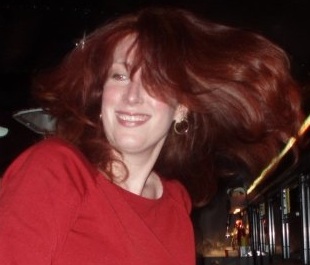Found out I’m in remission, but I’m not that happy.
When I saw those words appear in my Twitter feed, I immediately replied to my friend:
I’m grateful that you are done with treatment, but I get it. Call me if you want. Love you!
My telephone rang one minute later.
We talked about how people who haven’t been through it can only sympathize so much, despite their good intentions. I let her know that as someone who loves her, I am thrilled that she’s cancer-free. But, as a fellow cancer survivor, I appreciate all too well that her life doesn’t just return to how it was before her diagnosis.
Our perspectives have changed. Our priorities have changed. And, our relationships have changed.
We faced a "new normal" during treatment, and now, we're adjusting to another "new normal" with the end of treatment. Life is full of trials and tribulations like this but that doesn’t mean that they are easy to process or for others in our age group to understand.
I have always been cognizant of and thankful for the many blessings in my life. Even on my lowest days, my glass has been at least half full.
But, when your glass is half full, it’s also half empty. That analogy applies to how I feel like now that I’m done with treatment. I’m elated to be finished with chemotherapy, radiation and herceptin IVs, but the experience still looms over me like a dark cloud in the distance.
1. It’s a hairy situation. Chemotherapy causes the hair on your head to grow at a slower rate than normal. The chemicals also cause most women's hair to curl. Because of how thick and curly my hair is coming in, it’s growing up, rather than down. There’s also a curly, short femullet thing happening.
I have to do more to maintain my hair now than when it was down to the middle of my back. (Before cancer, I went for a blow out once a week, and that was it.) Now, I sit in the chair at the salon with sunglasses on so the other clients don’t see me crying.
I appreciate that to others with perfectly good intentions, the presence of hair on my head makes them more comfortable. But, to me, the presence of a never-ending bad hair day is a constant reminder of what has happened.
There’s also some irony that hair doesn’t return at the same pace all over. One friend and I were kvetching the other day about how we now have more hair on our legs than we've ever had before. And, my old aesthetician is baffled as to why my eyebrow hair is growing like a Chia Pet in some spots, but not in others.
2. Keeping everything in check. One friend was diagnosed with breast cancer in early 2010. She's been in remission for over a year, but she's still in the process of getting reconstructive surgeries. The idea that mastectomies and reconstruction are done in one surgery is false!
I’ll be seeing my oncologist, radiation oncologist and breast surgeon at four-month intervals. I’ll be getting one mammogram a year and one breast MRI a year. The reason for such vigilance is that when you’re diagnosed with breast cancer at a young age, there’s a greater chance of recurrence. I have between a 20-30% chance of breast cancer returning within five years. That percentage could be much higher, but it could also be lower. I can’t give much energy to a distant possibility, but I can’t ignore it either.
During my biopsy in July, my doctors commented that I have a lot of mass and fibrocystic breasts. I reminded myself then that only 2 biopsies out of 13 over the years came back as malignant (cancerous). However, it's highly likely that I will need more biopsies in the future. Being vigilant about health matters is empowering, but worrying about whether cancer has returned is very unpleasant.
3. The change. A year ago this week, I started hemorrhaging. By the end of the month, I was in menopause. I went out of menopause in late July, but my hormones now resemble those of the average teenage girl. I’ve had one period in a year. (For those of you who are wondering, I'm not pregnant. Thankfully.)
4. Ports Ahoy! My medi-port, the small device implanted under my skin through which the doctors administered medicine and took blood, is still in me. The nurses recommended that I keep it in for a while since my veins are so bad. It’s somewhat odd to think that the only reason the medi-port would need to be used is if my cancer returns. (Hey, cancer, go away! Don’t come near me! Better yet, don’t go near anyone anywhere! A girl can dream, right?)
My glass is still more than half full, but it’s a bit of a rude awakening that no longer having cancer doesn’t exactly translate into being done with cancer.
No matter what I go through, I’ve found peace when I focus on others and the cause as a whole.
With that in mind:
If you haven’t felt your boobies this month, please do!
If you find a lump, make an appointment with a breast surgeon!
If you haven’t gotten your annual gynecological appointment yet this year, please schedule one now. Make sure your gynecologist performs a clinical breast exam in addition to a pap smear during that appointment.
If you see any abnormal moles, please call a dermatologist.
Guys, feel your balls and look at your chest, too. Call the doctor if there are any abnormalities or pain.
I care. xoxo
